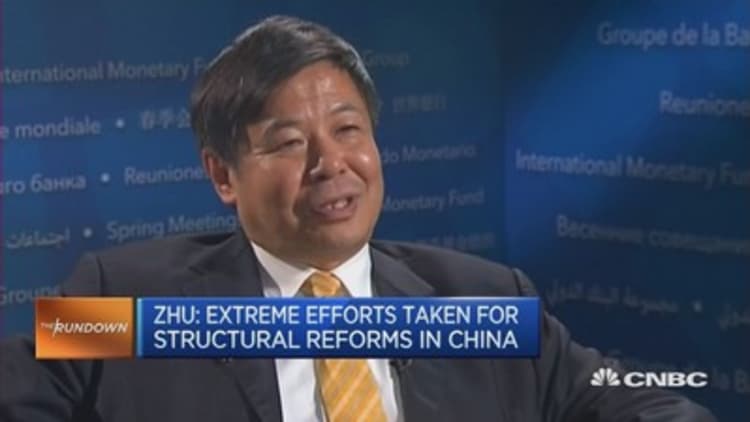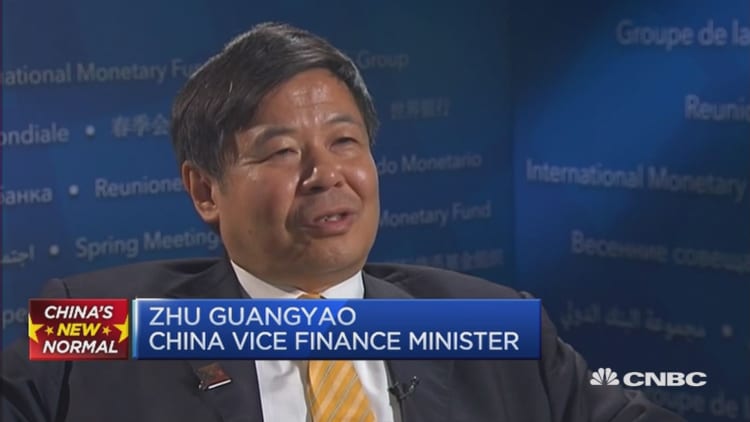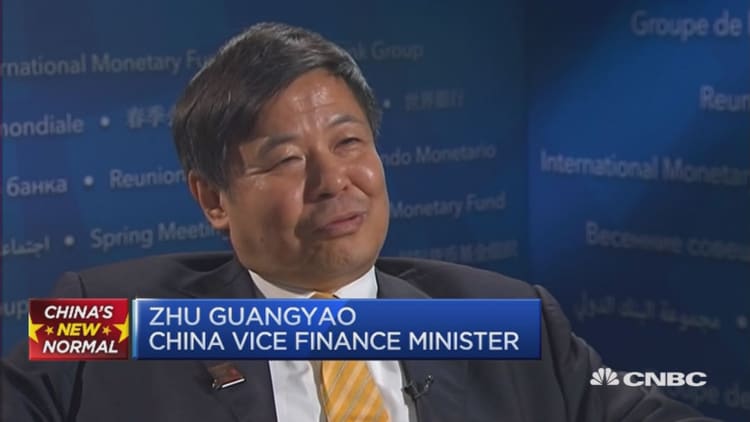


China's vice finance minister sought to ease nerves over the country's high levels of corporate debt, defending the government's performance on the issue so far in an interview with CNBC.
Corporate debt is estimated at around 160 percent of gross domestic product (GDP) and has raised alarm bells with some analysts. In a report last week, the International Monetary Fund (IMF) warned that about $1.3 trillion of corporate bank loans were owed by firms which do not earn enough to make interest payments. If left unchecked, that could result in bank losses equal to 7 percent of GDP, the IMF said.
Zhu Guangyao conceded the government needed to "pay attention to avoid any systemic financial risk," but added that at the government level, the debt-to-GDP ratio stood at no more than 40 percent.
"We understand there are challenges on the company side, so that's why we must promote deleverage," he said.
Credit rating agencies have also expressed concern over the issue. Their moves to downgrade their outlooks on China's credit rating last month were misguided, Zhu said, arguing that the IMF's latest forecast shows the economy is in good health.
S&P and Moody's in March both cut their outlook on China's credit rating to negative from stable. Fitch maintains a stable outlook, but warned earlier this month over the mainland's high levels of debt.
"Their assessment for outlook change from stable to negative is absolutely wrong because the IMF just downgraded global economic forecasts for 2016 from 3.4 [percent] to 3.2 and all advanced economies have been downgraded," Zhu Guangyao told CNBC on Friday at the IMF Spring Meeting in Washington. "However, compared with that, the IMF upgraded China's economic forecast from 6.3 to 6.5."
"The IMF forecast gives us a strong response to the ratings agencies," he added.
In its decision to downgrade the outlook, Moody's Investors Service cited uncertainty over whether authorities can implement the reforms needed to address imbalances in the world's second-largest economy.
Additionally, China's shrinking economic growth has long been a focus for global markets, as President Xi Jinping engineers a structural slowdown to transition the country away from manufacturing and toward domestic consumption and services. There are also concerns over high levels of corporate debt.
The world's second-largest economy expanded 6.7 percent on-year in the first quarter, slightly slower than the previous quarter's 6.8 percent pace, according to official data released on Friday. That followed aggressive monetary stimulus from the country's central bank, The People's Bank of China (PBOC), which has lowered interest rates six times since November 2014 as well as slashing the reserve requirement ratio (RRR) for banks.
China is aiming for a growth target of 6.5 to 7 percent this year, down from last year's "about 7 percent."


